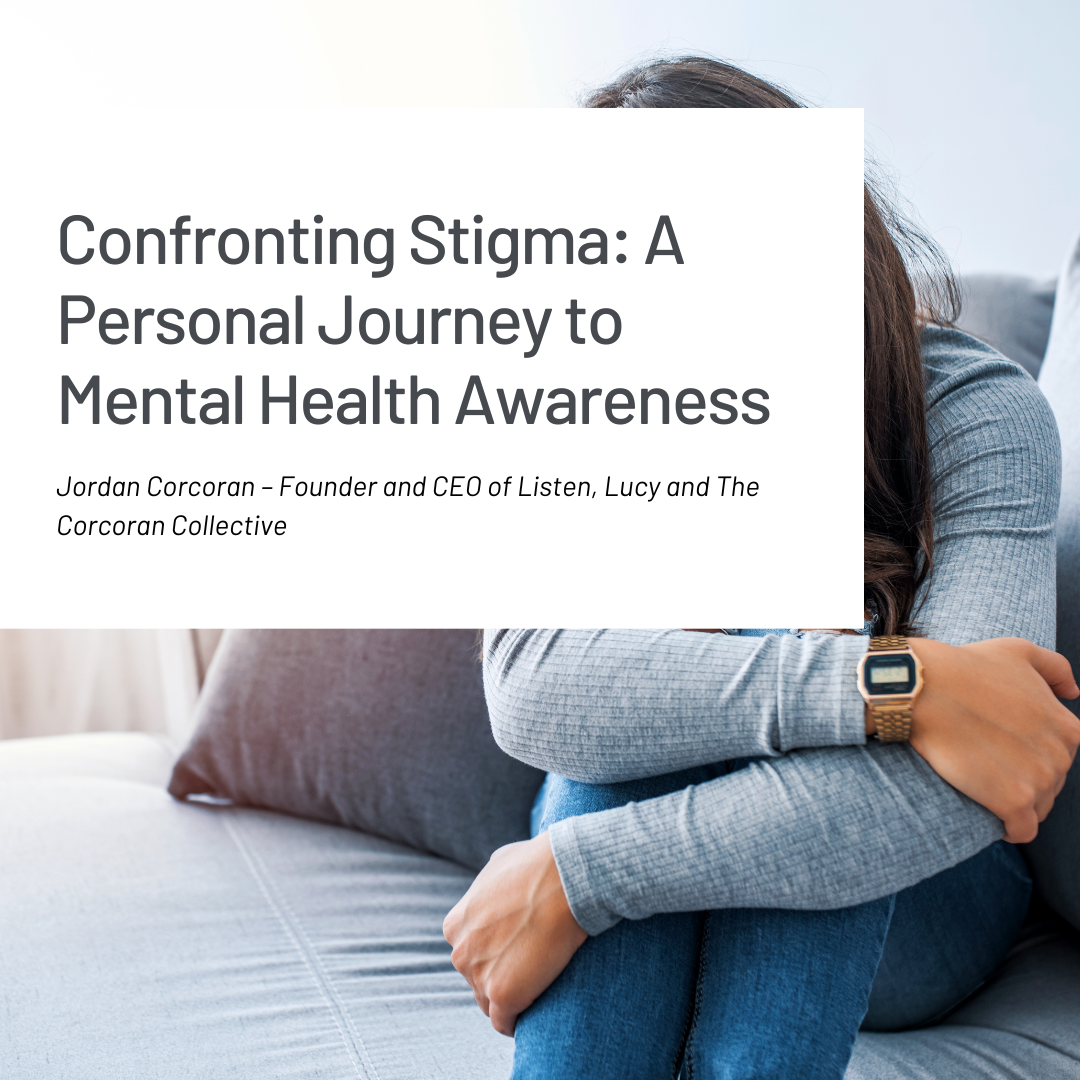
By: Jordan Corcoran – Founder and CEO of Listen, Lucy and The Corcoran Collective
Eleven years ago, I started my mental health organization Listen, Lucy – where I use my lived experience with Generalized Anxiety Disorder and Panic Disorder to raise awareness on mental health concerns, educate on stigma, and offer free and accessible coping techniques.
As we make our way through September and honor National Physicians Suicide Awareness Day on September 17th, I want to shed some light on how stigma impacts peoples’ journey to recovery. While my career is not the same as those reading this blog, my story may resonate with someone because of how stigma kept me from getting the help I needed, and more importantly, deserved.
In 2005, as a teenager grappling with undiagnosed mental health issues, severe bullying, and difficult family circumstances, I began experiencing intense physical symptoms that affected my health. With limited understanding of mental illness at the time, my parents and I navigated the healthcare system to find answers. It wasn’t long before doctors, counselors, and coaches suggested I might be struggling with anxiety. This suggestion deeply humiliated me and left me feeling angry and combative.
During that period, mental health stigma was pervasive and deeply ingrained. The prevailing attitudes and stereotypes made acknowledging my struggles feel profoundly shameful.
The cultural and social climate surrounding mental health issues was characterized by a significant degree of misunderstanding and negative judgment. Mental health conditions were often dismissed or trivialized, and people with such conditions were frequently subjected to derogatory labels and misconceptions. This widespread stigma created an environment where seeking help was not only seen as a sign of weakness.
Admitting that I was struggling mentally was not just a personal challenge; it felt like stepping into a harsh and critical spotlight. The fear of being judged, ridiculed, or misunderstood was overwhelming. The stigma surrounding mental health meant that expressing vulnerability or acknowledging difficulties was often met with negative reactions. This environment made it exceedingly difficult to openly discuss my mental health struggles without fearing the social repercussions and the impact on how others would perceive me.
It was a barrier that made addressing my mental health challenges even more difficult, highlighting the urgent need for a shift in attitudes and increased support for those facing similar issues.
After enduring two years of struggle and uncertainty, I eventually sought therapy and received an official diagnosis for my mental health condition.
Receiving a formal diagnosis provided clarity and validation for the experiences I had been enduring, which had often felt isolating and confusing. The diagnosis was not just a label; it was a crucial step in understanding the nature of my struggles and recognizing that my experiences were legitimate and worthy of attention. Accepting this diagnosis was an important part of my healing process. It required confronting the reality of my mental health condition and coming to terms with how it had affected my life.
Realizing how I was different—acknowledging that my mental health condition shaped my experiences and reactions—was both challenging and empowering. It involved understanding that my responses and struggles were not merely personal failings but were influenced by a diagnosable condition. This acceptance was a crucial step in transforming my approach to my mental health.
With this newfound understanding, I embraced coping strategies and therapeutic techniques like cognitive-behavioral therapy and mindfulness. This approach helped me manage my symptoms and improve my well-being. Educating myself about my diagnosis also facilitated my healing, empowering me to advocate for myself, seek appropriate support, and make informed treatment decisions.
Overall, this journey of acceptance and understanding allowed me to transform my approach to mental health from one of struggle and confusion to one of active engagement and empowerment. It marked the beginning of a more constructive and hopeful phase of my life, where I could focus on healing and building a more resilient and balanced self.
As we observe National Physicians Suicide Awareness Day, it’s crucial to recognize how stigma can hinder recovery. My journey from confusion to understanding underscores the need for empathy and support. By confronting and overcoming stigma, we can create a more compassionate environment, helping others seek the help they need and deserve.

